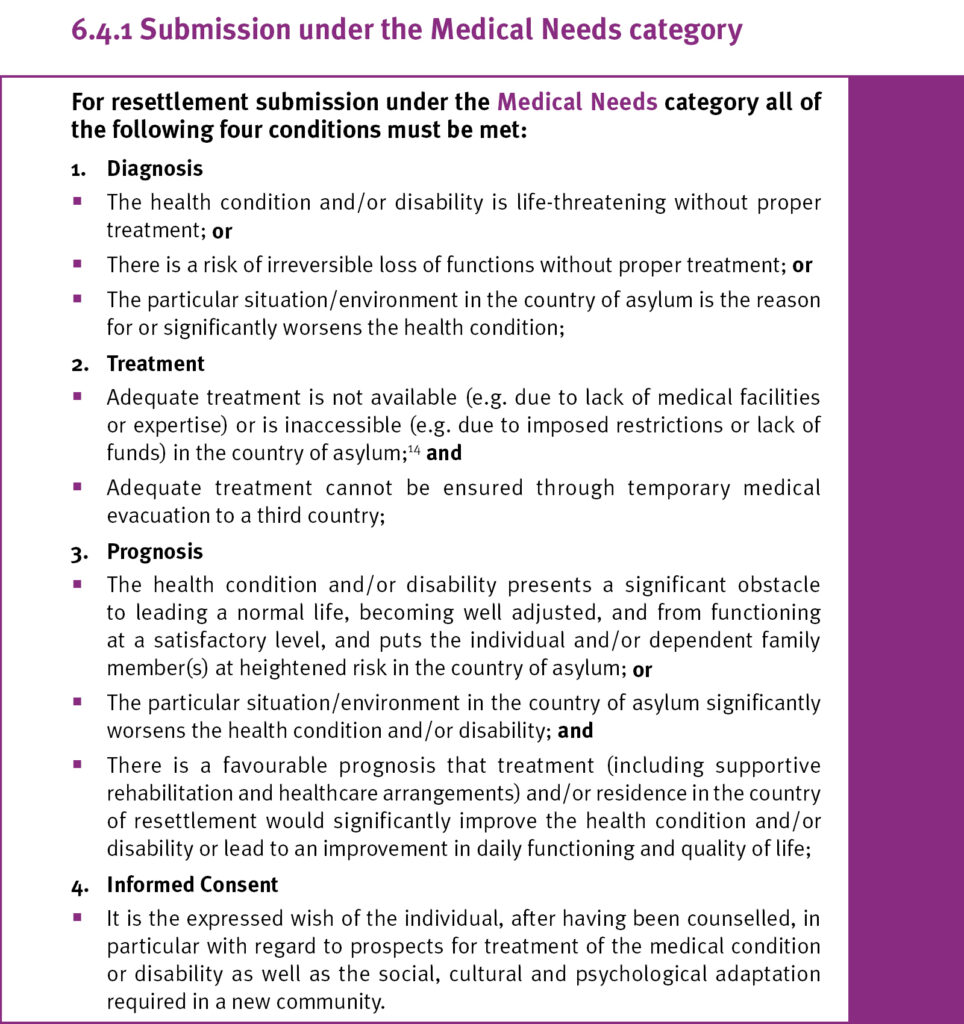Key things to consider when allocated a family where medical needs are identified
Under the UK Resettlement Scheme (UKRS), there may be a greater demand for resettlement places for those with medical needs. We know that this might cause you some concern about how you might support the family, but it’s important to think through whether your concern is warranted.
‘Medical need’ is a very broad description; you could be supporting someone who has an acute or chronic condition. This could be someone who requires life saving treatment which is not available in the host country but is readily available in the UK through the NHS. It may be someone for whom weekly hospital visits are needed or those who will require immediate medical care on arrival. At the point of applying you will not know the make up of the family you will support but it would be very useful to research the services available at your local hospitals. You can find out more about the UNHCR criteria for recognising and allocating the medical needs category on this page.
When you inform the Home Office of what medical conditions can be managed in your area when you complete the Property Offer Form, you will be asked which level of medical need you could accommodate:
- Serious Medical Needs: people with acute medical conditions, who require surgery, have a serious chronic and/or progressive condition (e.g., cancer, dialysis).
- Regular Medical: people with less serious medical conditions who require regular access to a hospital/doctor (e.g., diabetes, asthma).
How can we support someone with serious medical needs?
Whilst you work in the abstract this can be hard to do, but consider:
- How close will the accommodation be to the nearest hospital? What services/specialisms do hospitals near the property have?
- Are there members of your group with knowledge or experience within healthcare who can assist in navigating the systems in the UK?
- Would you be able to provide/access a transport service for the family member to have regular hospital visits? You might think about using local dial-a-ride services or running your own. Keep in mind that the family member may be eligible for the NHS Travel Costs Scheme
- If you would be able to support driving a family member to hospital, you should think through any insurance implications in discussion with your Lead Sponsor
- Working with the family members and with their permission, would you feel comfortable acting on their behalf to communicate with healthcare providers initially?
- You will receive the medical details of a family prior to accepting them. Take some time now to understand what the Migrant Health Assessment will tell you. If you are taking on a serious medical case, the family member will likely have an Activities of Daily Living form too
As you are considering the allocation of a family
- Are you able to support the family member to access the right benefits? For example, if they are of working age and unable to work due to their medical condition, they may be eligible for PIP or other benefits.
- If the person with medical needs requires a family member to be a carer, could you support both parties with their integration? Do members of your group have experience of being or working with carers?
- Think too about how you will manage the expectation of the family member you will be supporting, they may have the belief that coming to the UK will cure their illness immediately.
Remember that your role will not be to offer medical care to the person you support, but rather to ensure the individual with medical needs and their family get the support they need after arrival in the UK.

Source: UNHCR Resettlement Handbook downloaded 25.10.2021
